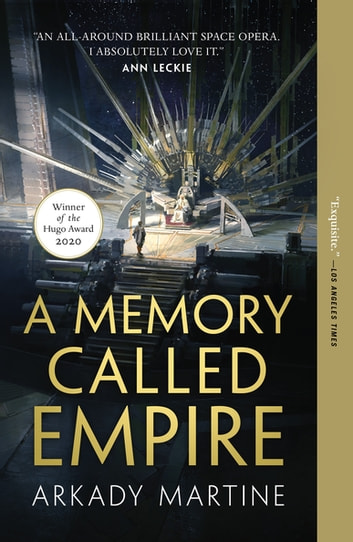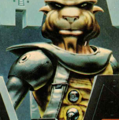This was a fantastic whirlwind of politics, intrigue, diplomacy wrapped in a vivid, unique setting. While some of the finer aspects of the book didn't quite land for me, I thought this was a great read and look forward to the next one.
In A Memory Called Empire, we follow Mahit, a resident of Lsel Station, a space station off in deep space; but that's not where the story takes place. You see, Mahit has been selected as the next ambassador to the Teixcalaanli Empire, a sprawling and powerful empire, influenced by Aztec culture. The previous ambassador, Yskander, has died under extremely mysterious circumstances, and while it is Mahit's mission to fulfill the role as ambassador, her secondary mission is to figure out what happened to him. And thankfully she has help from -- Yskander himself.. Well, an outdated version of him. On Lsel Station, residents utilize an extremely secretive technology that allows people to access the consciousness of other people before them, assuming they are a personality match. After a few years as an ambassador, Yskander returned to Lsel station to upload his consciousness at the time, then returned to the Teixcalaanli Empire, only to die after 15 years. It is this outdated version of Yskander that Mahit has to consult, but he knows almost as little as Mahit stepping into this new role. What follows is almost immediate politicking and backroom deals, figuring out where her successor left off, what he got himself into, what deals he made, and who to trust. With the backdrop of growing unrest around a succession crisis with the aging emperor and a growing unknown galactic threat, Mahit must move quickly to position herself as a main player so she can do what it takes to protect her people.
I have always really enjoyed extremely political science fiction stories. This book takes it to another level with the intriguing story being set in a beautifully crafted world. With every passing chapter, the Teixcalaanli culture took more shape and grew more vivid, leading me to love it as much as Mahit did. I loved how the tension steadily grew and grew throughout the book, coming to an explosive head that felt satisfying and well-earned. While the story was long and many might argue it was slow paced, I found the backroom machinations to be interesting, and I was never bored while reading this.
Despite being a lover of good world building, at the end of the day, I'm a character reader, and that's where this book missed a bit. While I liked Mahit's character a lot, I think many of the other characters I was supposed to like more than I did, particularly Three Seagrass and Twelve Azaela. I think an attempt was made to really make them likable, but I just wasn't feeling it, so some of the story beats that hit later on in the book that relied on the reader feeling a connection to the characters fell flat for me personally. There were some characters that I liked, like Nineteen Adze and the emperor, but that was more to do with how the story treated them with a level of reverence rather than having them be dynamic characters that cultivated an emotional connection. I really wish the character work here was stronger or it would definitely be a new favorite.
But still, I can't recommend this enough. Especially if you enjoy other political sci fi, like Dune, The Expanse, the Luna series, or the Ancillary series. I'm eager to pick up the next one!













